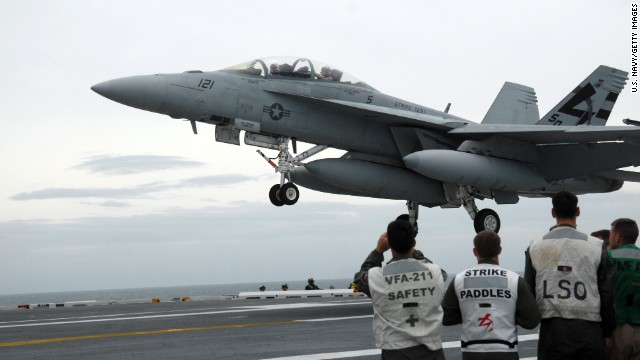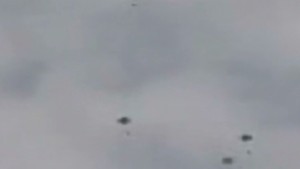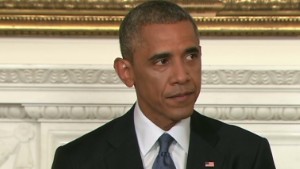U.S. conducts airstrikes on ISIS militants in Iraq
Two U.S. F/A-18 jet fighters bombed artillery of Sunni Islamic extremists in Iraq on Friday, escalating America's military involvement more than two years after President Barack Obama brought home forces from the country.
Obama authorized
"targeted airstrikes" if needed to protect U.S. personnel from fighters
with ISIS, which calls itself the Islamic State. The U.S. military also
could use airstrikes to prevent what officials warn could be a genocide
of minority groups by the ISIS fighters.
Meanwhile, a senior
Kurdish official told CNN that ISIS militants captured Iraq's largest
hydroelectric dam, just north of Mosul, Iraq's second-largest city.
According to the official, the militant fighters have been using
U.S.-made weapons seized from the Iraqi army, including M1 Abrams tanks.
There had been
conflicting reports about who controlled the dam on the Tigris River,
with heavy fighting under way between ISIS fighters and Kurdish forces,
known as Peshmerga. U.S. officials have warned that a failure of the dam
would catastrophic, resulting in flooding all the way to Baghdad.
In other fighting, an
Iraqi airstrike killed 45 ISIS fighters and injured 60 Friday in the
northern town of Sinjar, the country's state-run National Media Center
said.
Sinjar is the town that
ISIS raided last weekend, causing members of the Yazidi minority there
to flee into surrounding mountains without food, water or shelter and
prompting concerns of a potential genocide.
U.S. flights prohibited
 U.S. military's fighter fleet
U.S. military's fighter fleet
 U.S. starts aid drop mission in Iraq
U.S. starts aid drop mission in Iraq
 Obama authorizes airstrikes against ISIS
Obama authorizes airstrikes against ISIS
Other signs of a growing
regional conflict: The Federal Aviation Administration issued a notice
prohibiting U.S. airlines from flying through Iraqi airspace "due to the
hazardous situation created by the armed conflict."
The developments showed
that the lightning advance by ISIS fighters across northern Iraq this
year has become a battle for the nation's future and overall stability
in a part of the world wracked for decades by periodic war.
French President
François Hollande strongly condemned ISIS attacks against the Iraqi
population and vulnerable minorities such as Yazidis and Christians and
called for the international community to respond.
"France is ready to take
its part," Hollande said in a statement from his office that called for
the European Union "to take an active role very quickly" and put in
place all the necessary ssistance to respond to the crisis.
U.S. warplanes
patrolling the skies over northern Iraq have a "green light" to go after
perceived ISIS threats to the Kurdish capital, Irbil, or to minority
populations, said deputy national security adviser Ben Rhodes.
Laser-guided bombs
The first strike
involved 500-pound laser-guided bombs on a "mobile artillery piece" used
by ISIS at about 6:45 a.m. ET Friday, Pentagon spokesman Rear Adm. John
Kirby said.
It came in response to
an ISIS advance this week on what officials call U.S. interests in
Iraq's Kurdish region in the north. The militants took towns from the
Kurdish Peshmerga.
Before the onslaught,
the region had been the most stable in Iraq and a cooperative ally of
the United States. U.S. military advisers and consular personnel are
stationed in Irbil.
The mobile artillery battery hit Friday was based outside Irbil, Kirby said.
In announcing his airstrike decision Thursday night, Obama said the militants would get hit "should they move towards the city."
No comments:
Post a Comment